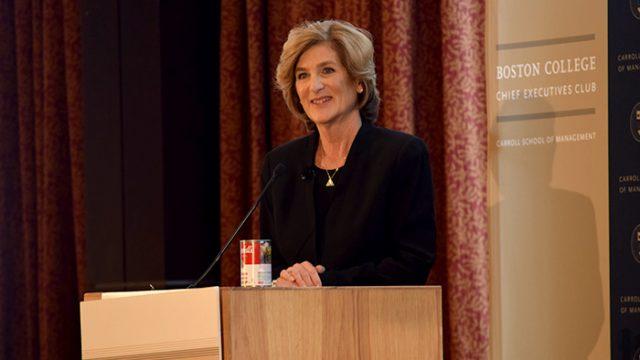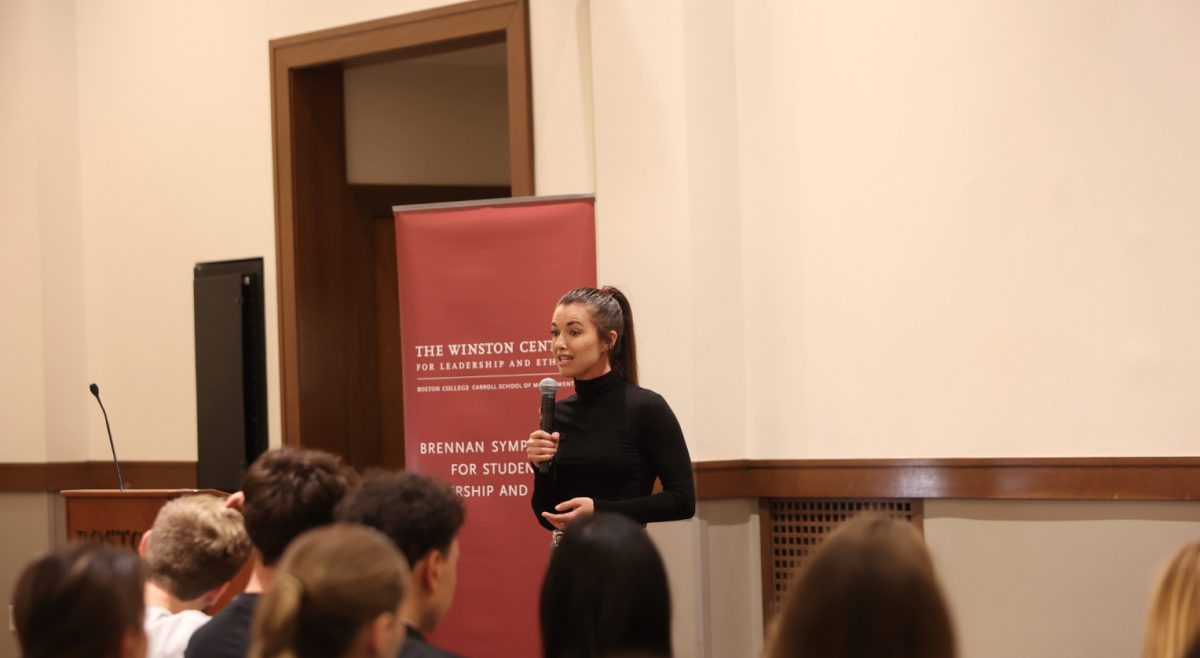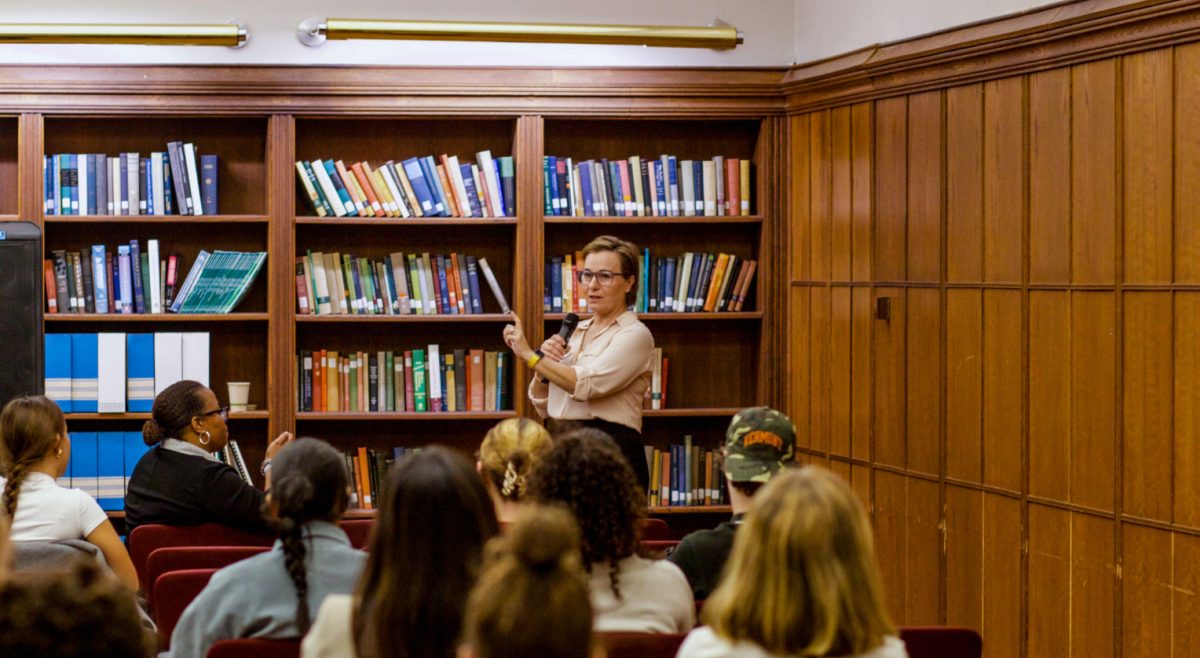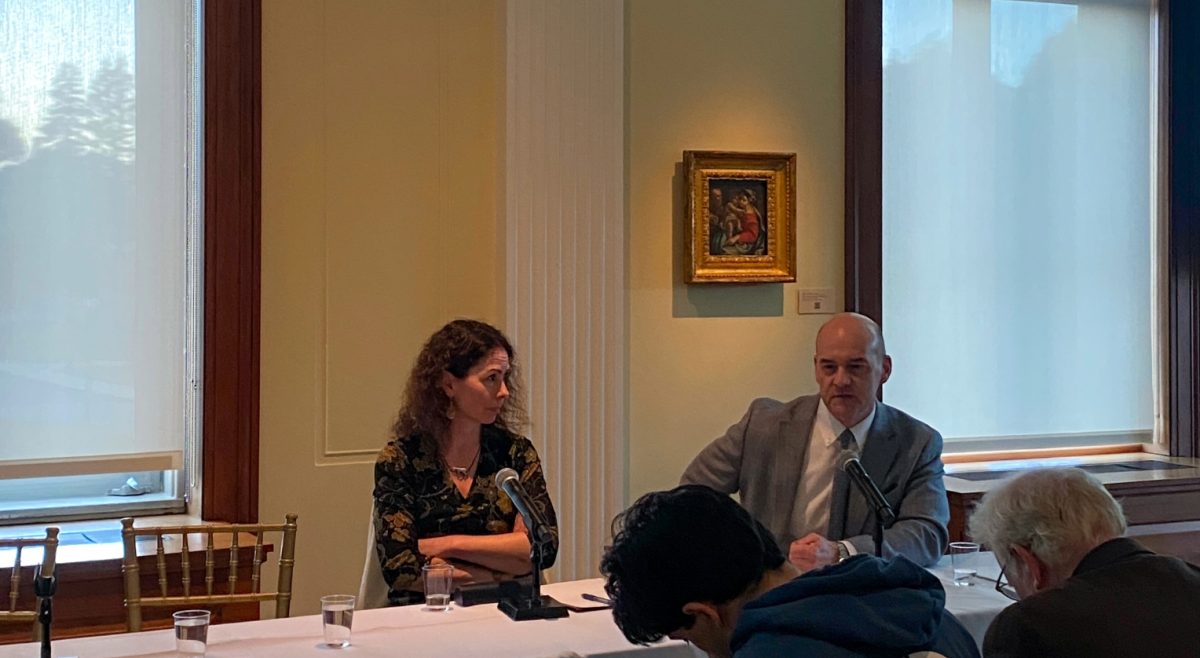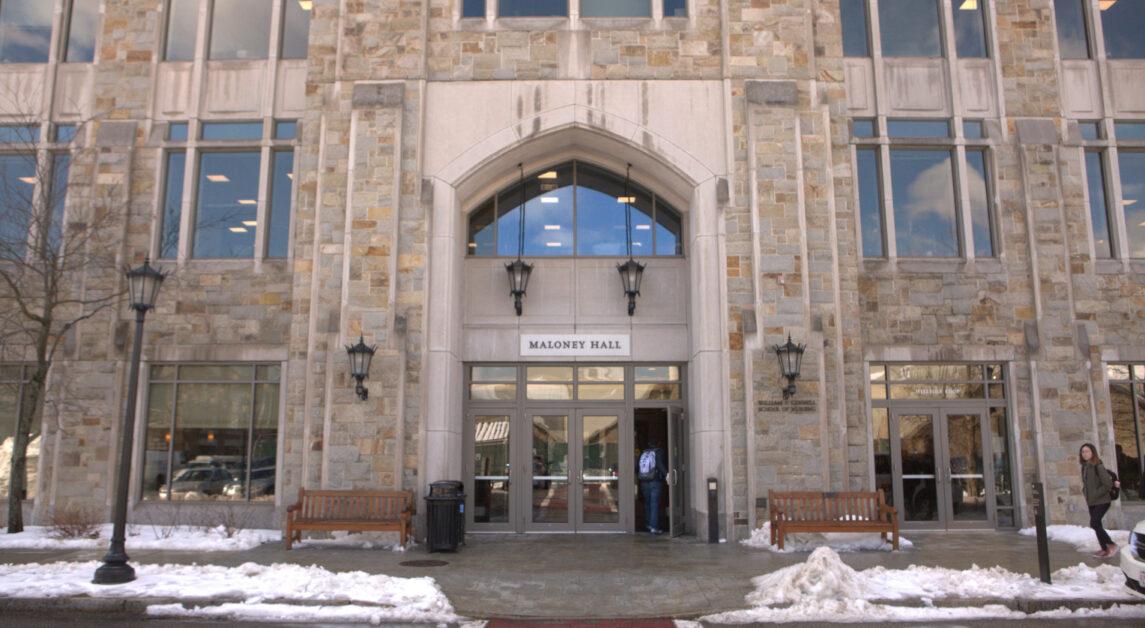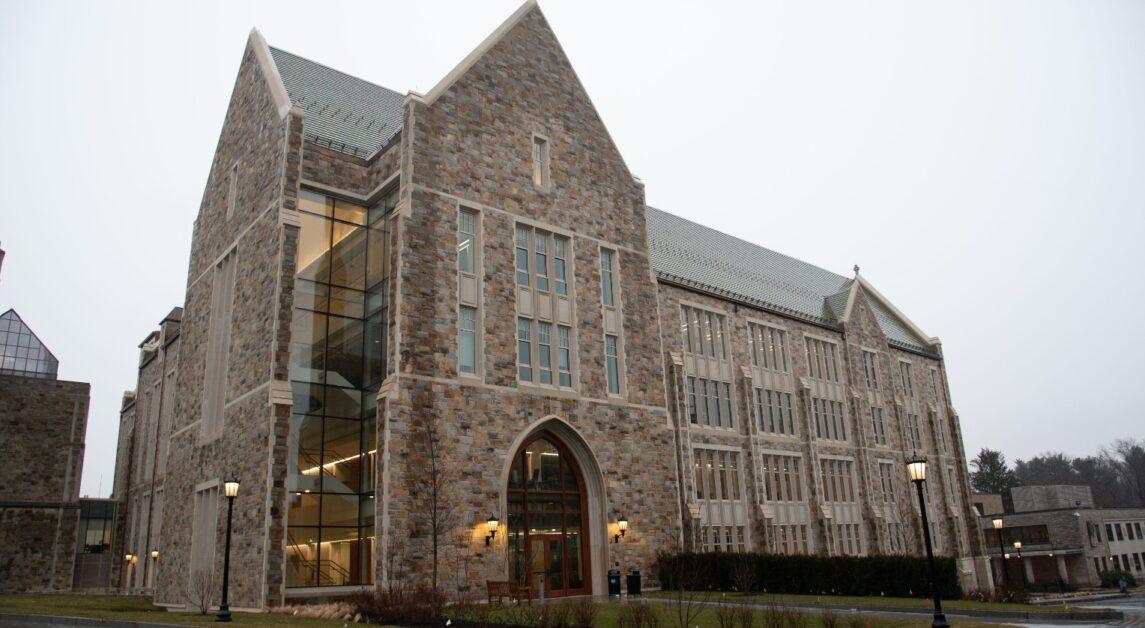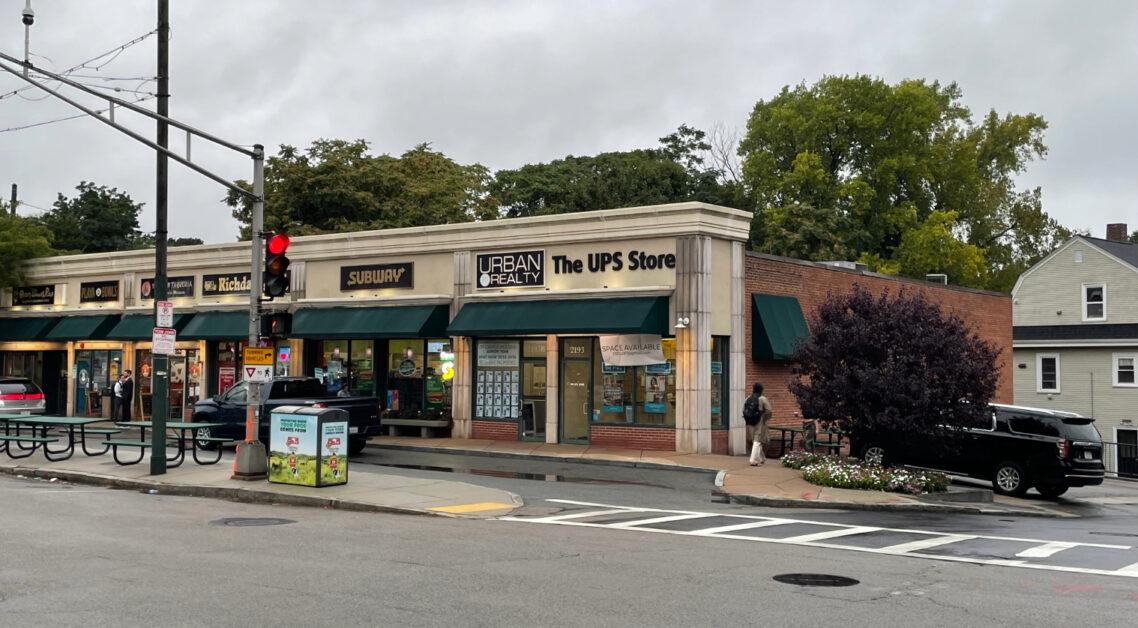Denise Morrison, president and CEO of the Campbell Soup Company and BC ’75, said that the seismic shifts many industries are experiencing are a source of not just disruption, but also opportunity, while speaking at a meeting of the Boston College Chief Executives Club on Wednesday, April 12.
Held at the InterContinental Hotel in Boston, the event was officially hosted by John Fish, who is chairman and CEO of Suffolk, a Boston construction firm, and chairman of the board of trustees at BC.
Warren Zola, executive director of the BC Chief Executives Club and BC ’96, said in his opening remarks that since its founding 19 years ago by Jack Joyce, BC ’61, the club has provided 79 scholarships to inner-city students from Boston to attend BC—an estimated value of over $7 million.
Zola emphasized the value of the Ignatian method of education, praising the Jesuit ideals of experience, reflection, and action as a model for comprehensive personal development.
Fish lauded Morrison’s accomplishments, as both a caretaker of the iconic Campbell’s brand, and as a disruptor of conventional practices and attitudes in the food industry. An influential business leader, Morrison was named by Forbes in 2011 as the 80th most powerful woman in the world and in January 2017 was named to President Donald Trump’s Manufacturing Jobs Initiative.
Morrison, a self-described “screaming Eagle,” said that she was a member of only the second class of BC undergraduates that included women and, after graduation, was the first female salesperson in Procter and Gamble’s paper division in Boston.
Describing the challenge of preparing for the future in a world featuring seemingly constant and unpredictable change, Morrison said that, in 2016, conventional expectations were upended by the British vote to leave European Union, the election of Trump, and even the Chicago Cubs winning the World Series.
“The future will continue to be more complex and more challenging, but with change and complexity come opportunity,” Morrison said.
Morrison also addressed the the implications of a new wave of social and political populism, which has recently swept European nations from their international moorings and lifted anti-establishment politicians into office in the United States, for established business institutions like Campbell’s.
“[The] acceleration and convergence [of these seismic shifts] have sown the seeds of systemic distrust that are leading to the rejection of large, established institutions, including media, gov, business, and yes, food,” Morrison said. “Earning and keeping trust needs to be on the top of everyone’s to-do list.”
Morrison spoke of the disruptive forces of change that are impacting many industries worldwide—developments such as transforming demography, urbanization, increasing multiculturalism, and the rise of e-commerce, automation, and data-analysis tools—as the seismic shifts which may be the harbingers of a fourth industrial revolution.
“All of us in the room recognize that the world is turbulent, fast-moving, and complex,” Morrison said. “Across every industry, and every organization, the pace of change is unpredictable, unrelenting, and unforgiving—especially for the ill-prepared.”
Morrison said that strategic foresight is the anticipatory philosophy guiding her firm’s preparations for the future.
“It’s a systemic approach to understanding and anticipating how change is taking place today, and how that change will present disruptions—and opportunities—for our business tomorrow,” she said.
While admitting that anticipating the future of one’s industry can present a daunting challenge, Morrison said she believes that by paying close attention to the present and practicing responsive leadership, this task is more than possible.
“In many respects, the future is already here,” Morrison said. “[Change is] often imperceptible as we move through our daily lives, but, if you look closely, the future is in plain sight—you just simply have to pay close enough attention to the signals.”
Featured Image by Amelie Trieu / Heights Editor

